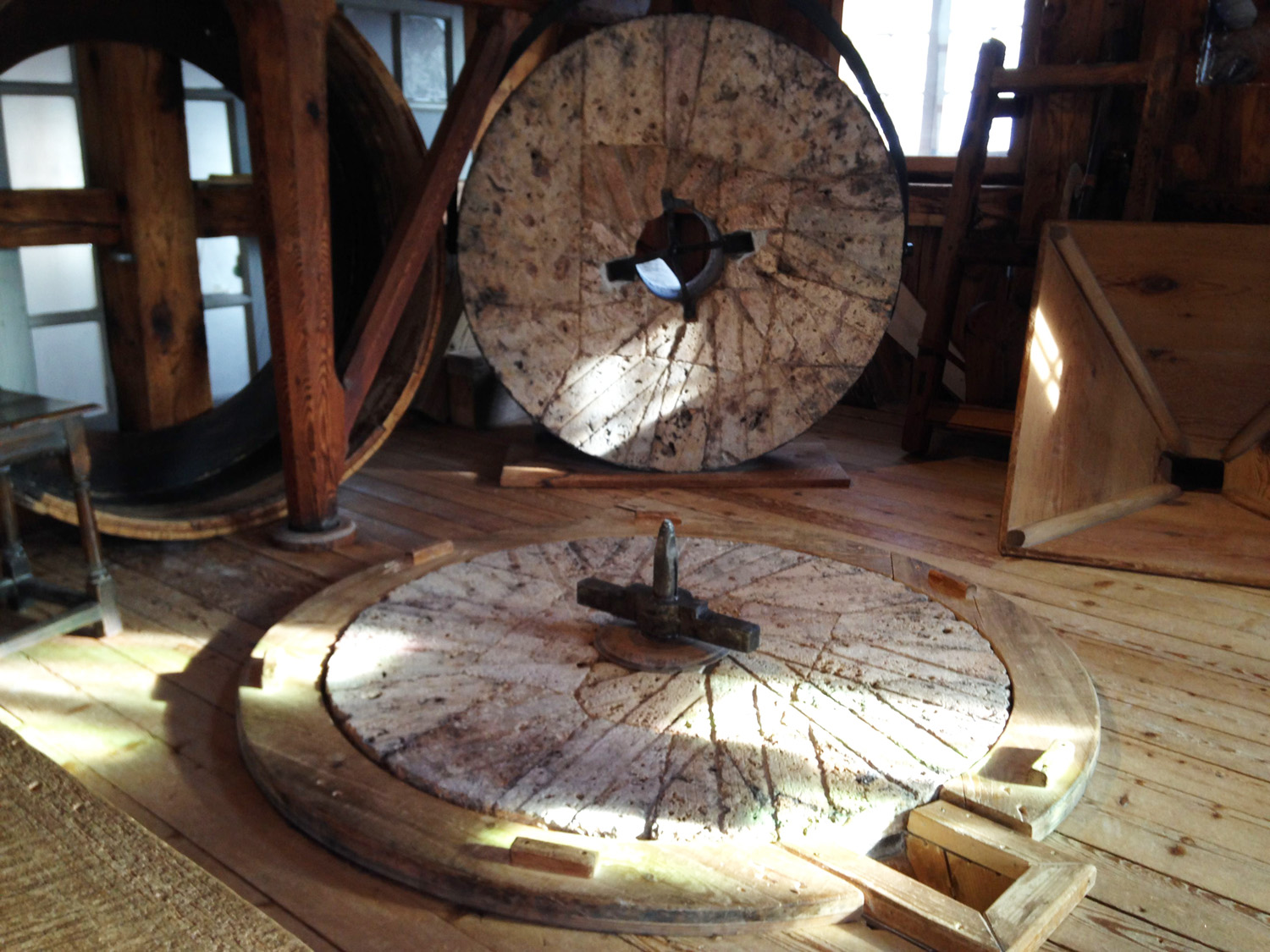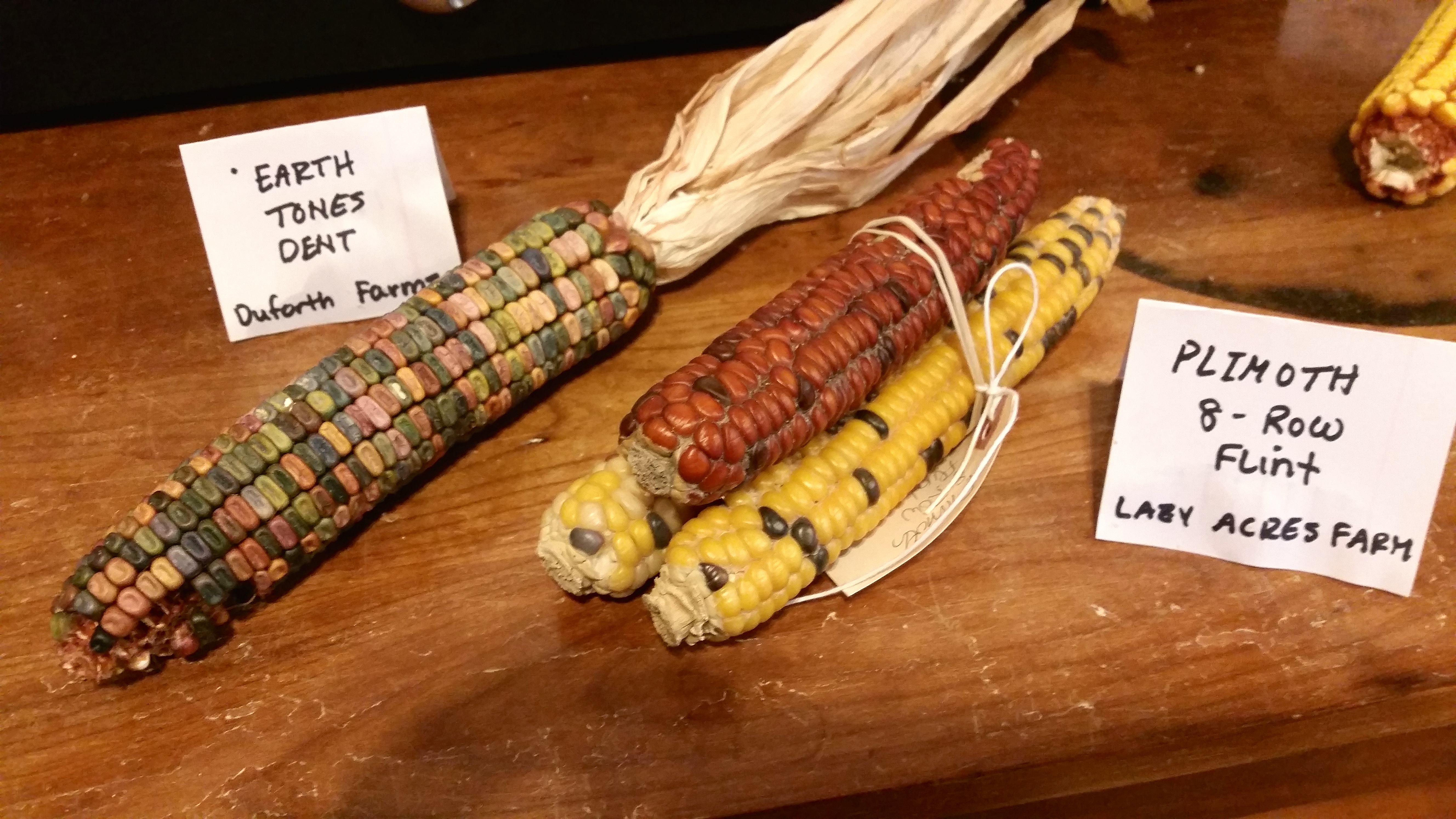Share This
There’s a grain renaissance brewing in Massachusetts and the Whole Grains Council was lucky enough to share an afternoon with many of the movers and shakers making it happen. On a frigid, blustery Saturday in March, farmers, millers, bakers, maltsters, brewers, distillers, and chefs from around the region gathered at Plimoth Plantation’s recently renovated Grist Mill to make new connections and strategize ways of growing the local grain economy.
Strengthening the Local Grain Movement
“Although grain is one of the last foods to enter the local-food movement, we are on the precipice of a grain explosion.” Tristan Noyes, the Executive Director of the Maine Grain Alliance, kicked off the gathering with ideas and examples from the Maine-based non-profit that supports the local grain economy there. The Maine Grain Alliance was created in 2010 as a way for farmers and grain-based-business owners in Maine to build connections, exchange knowledge, and share resources. It strives to, “establish food independence, good health, and purposeful jobs,” and provide opportunities for collaboration and connection between different parts of the food system.
Selling locally grown grains in New England is not the same business as selling grain on the commodity market – nor should it be. Growing and selling in a local grain economy allows farmers to cultivate and preserve heritage grains grown for flavor and superior performance in baking or malting, rather than growing for yield. “You can taste the quality. It’s a bit more expensive but it’s worth it,” argues Brenton MacKechnie, a distiller at Dirty Water Distillery.
Getting local grain into restaurants and bakeries doesn’t always happen quickly or easily – chefs and bakers have to know it’s available and understand its value and flavor profile. Michael Morway, Executive Chef at Granite Links Golf Club in Quincy, MA, was already buying organic cornmeal from his corporate supplier and figured it couldn’t get any better. But his first taste of the 8-row multicolor flint corn being milled at the Plimoth Grist Mill, “blew my mind and changed my whole perspective on food,” he said. “I actually tried to keep the cornmeal a secret.”
Why Local Grain?
While New England is no longer known for its grain production, grain grown in this region sustained generations of people. Just 150 years ago, there were 15,000 grain mills dotting the Northeast countryside. The Plimoth Plantation Grist Mill itself stands as a monument to the important role that grain (particularly corn) played in this region.
For many famers today, adding grain into their crop rotation can have significant economic and environmental benefits. The vegetable growing season is short in New England and growing grain allows the profits of this season to be extended. Stored grain can be milled all winter long, bringing in a reliable paycheck during off-season months. Using grain crops as cover crops offers the added benefit of restoring nutrients to the soil and reducing the effects of soil erosion and compaction, increasing the overall health and fertility of a farmer’s fields.
Local, heritage grains offer bakers and brewers flavor profiles they cannot find in the commodity market. Choosing to use heritage grains can pose a challenge in the beginning because there is more variation in protein levels and moisture content from one crop to the next. This inconsistency introduces difficulty, but also opportunity. Freshly milled flour is very active and performs differently than conventional flour. “You can’t just mash it up in a mixer – you have to watch and adjust and be ready to work with what you have,” explained Jonathan Stevens, baker at Hungry Ghost Bread. “Sometimes it’s limitations like these that bring out creative thinking. You have to be a craftsperson and pay attention to what’s going on.”
Flavors Worth Every Penny; Relationships that are Priceless
The cost of growing and buying local grains is a concern shared by farmers and business-owners alike. It costs more to source locally, but consumers are often willing to pay a premium for the superior taste of products made with higher-quality ingredients. Stevens admitted he has, “an expensive relationship” with Jacob L’Etoile at Four Star Farms, from whom he receives a third of his flour every week. But he has found that his customers value the flavors these grains produce and they appreciate the stories behind his creations.
Paul Nixon, a brewer at Independent Fermentations Brewing, explained that for him, the decision to source locally is about personal values. “We choose to work with people we know, people we like, people we can visit. And often, those people are able to offer me advice that makes my business better.”
Stevens reminded the group that an economy, in its most basic form, is supposed to be a collection of relationships between people. Enabling these relationships to form and develop more often and more easily benefits everyone. Strengthening and supporting our grain economies and local food systems by sharing knowledge and resources allows us to, “draw the thread through everything,” says Noyes. “And the result is almost certainly a more bountiful harvest for everyone.” (Caroline)





Comments
Add a Comment